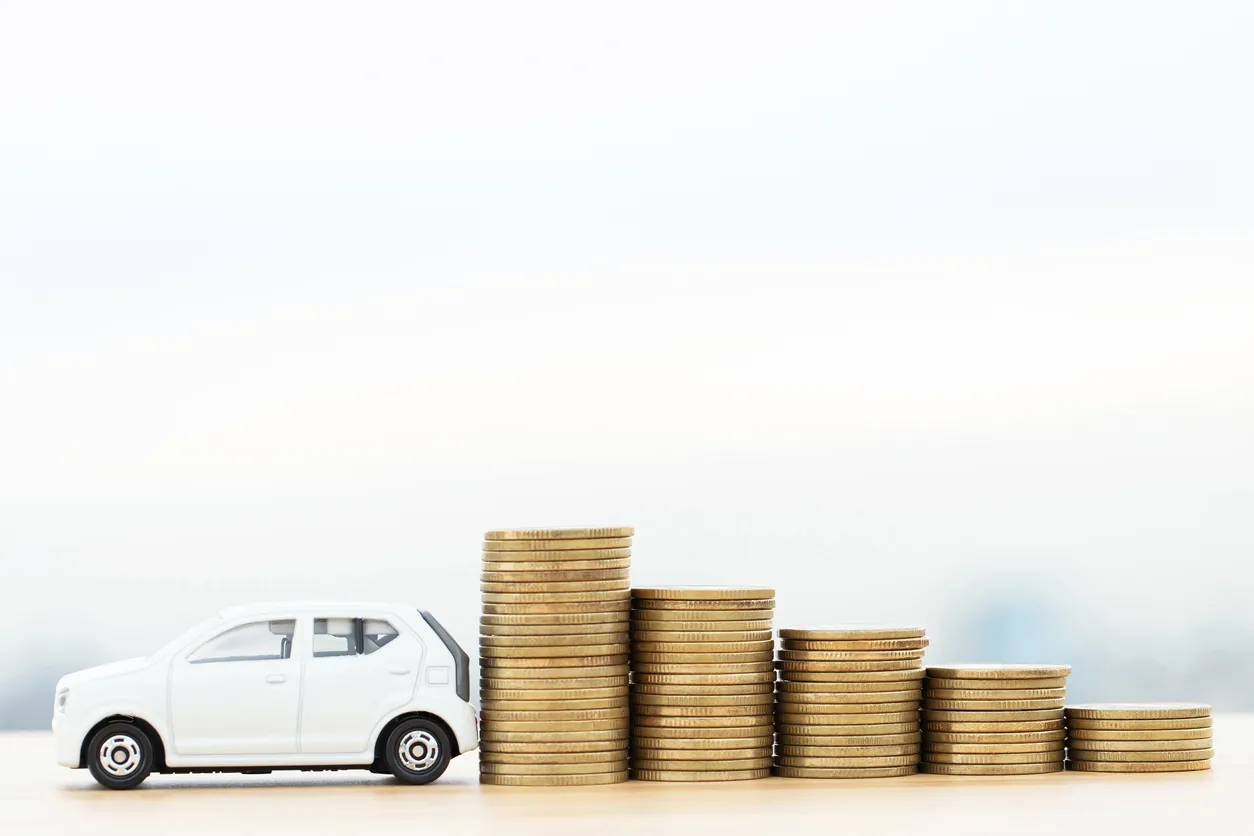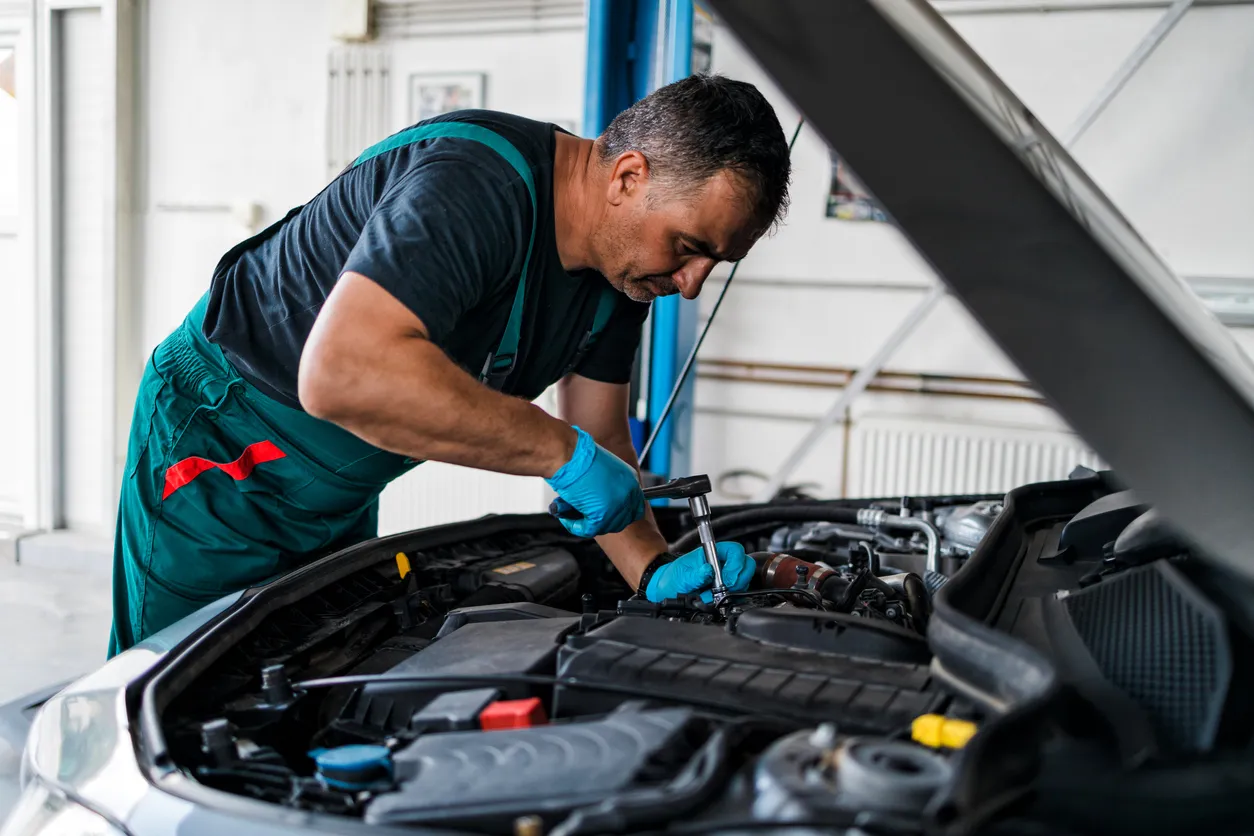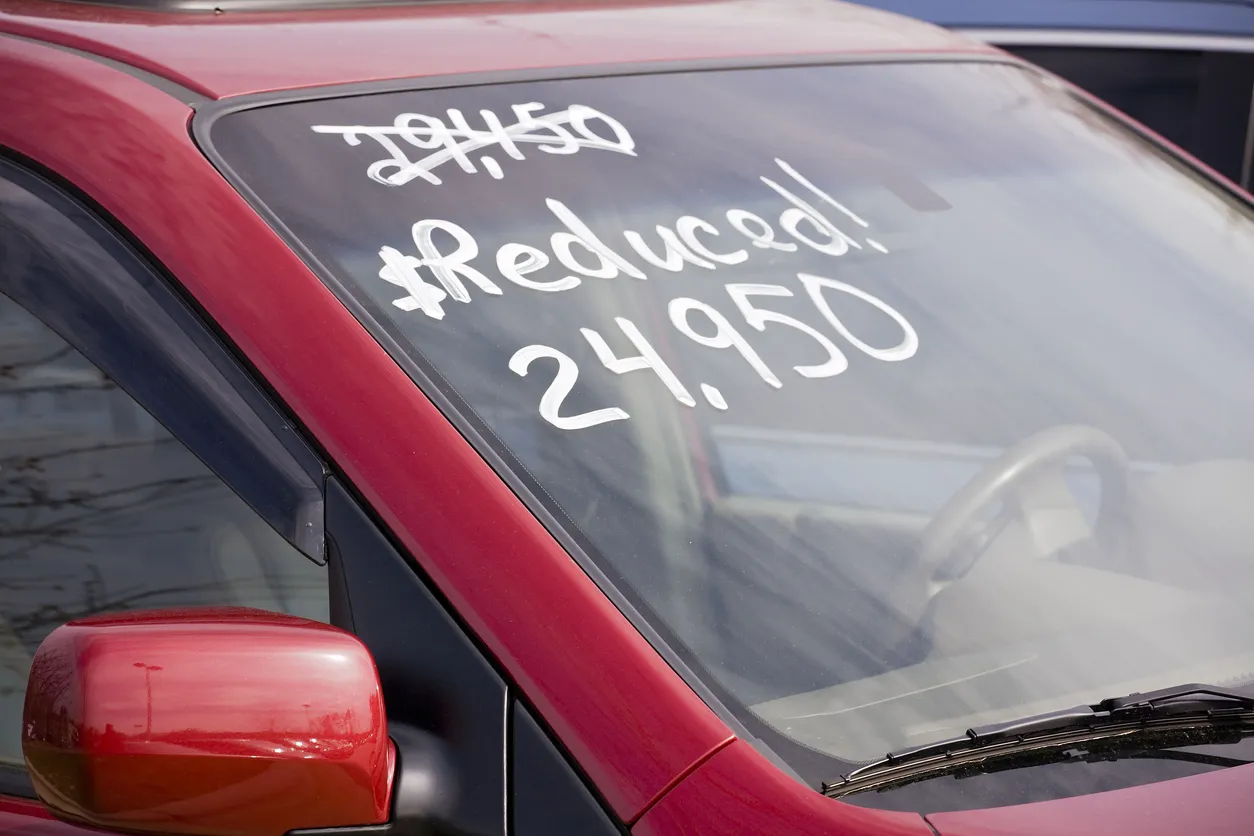- How Much Does a Car Depreciate Per Year?
- What Is Car Depreciation?
- Why Do Cars Depreciate So Fast?
- How Much Does a New Car Depreciates When You Drive It Off the Lot?
- How Much Is My Car Worth?
- What Three Factors Affect The Total Price Of a Car
- How To Avoid Car Depreciation
- The Value of Using a Depreciation Calculator
How Much Does a Car Depreciate Per Year?

Purchasing a car can be a big investment, so it is important to know how much value does a car lose per year? So today, GoodCar wants to teach you a little about the concept of car depreciation and how various factors can impact its rate. We will give you insight into when, why, and how depreciation occurs, as well as what affects its rate.
What Is Car Depreciation?
Car depreciation is the loss in value of a car over time. It can be caused by many factors, including wear and tear, age, mileage, and even the economy.
Generally, car depreciation per year is 10% for the first three years. After that, the auto depreciation rate slows down but never stops unless the vehicle is custom, limited edition, or incredibly rare. The make and model of the car also affect how quickly it loses value.
There are a few things you can do to minimize car depreciation. First, choose a car less likely to lose value quickly (such as a Toyota or Honda). Second, keep your car in good condition – regular servicing and maintenance will help it retain its value better. Finally, avoid purchasing modified cars or making aftermarket modifications to your vehicle – these often lose value quicker than unmodified ones. This depreciation of a car is typically because you limit the buyer pool for that vehicle as it will only appeal to a much smaller demographic.
Why Do Cars Depreciate So Fast?
One of the main reasons for car depreciation is because of their warranties. As a car ages, its warranty expires and becomes less valuable to buyers. This is because they will have to pay for any repairs or replacements out of pocket. In addition, the depreciation of a car with high mileage tends to ocur faster than those with low mileage. This is because they have been used more and may have more wear and tear.
Another reason for car depreciation is market conditions. If more cars are on the market than buyers, prices will go down. The reverse is also true – prices will go up if there are more buyers than sellers. Vehicle depreciation is influenced by these market conditions, which can change quickly, so it's important to keep an eye on them if you're considering selling your car.
Finally, how well a car is maintained can affect its depreciation rate. If you regularly service your car and keep it in good condition, it will retain its value better than one that isn't well-maintained.
How Much Does a New Car Depreciates When You Drive It Off the Lot?
When you drive a new car off the lot, its value typically depreciates immediately by about 10% to 20%. This instant drop is due to the car transitioning from "new" to "used" status as soon as it's driven, regardless of how few miles are on the odometer. Over the first year of ownership, the car's value can depreciate by as much as 15% to 25% in total. This rapid depreciation is an important factor to consider when purchasing a new vehicle, as it significantly impacts the car's resale value.
Types of Car Depreciation
There are several different types of car depreciation. The most common is chronological vehicle depreciation (when your car loses value as it ages). This is due to wear and tear, as well as changes in technology and design over time.
Other types of depreciation include economic vehicle depreciation, which is when your car's value is affected by external factors such as inflation or recession, and physical vehicle depreciation, which is when your car's value is affected by damage or deterioration. Each of these factors can impact how much value your vehicle keeps or loses over time.

How Much Is My Car Worth?
There are a few different ways to calculate a used vehicle's value. The most common method to determine the value is using an online tool like the ones included in the GoodCar Vehicle History report. This is calculated by taking into account the vehicle's make, model, year, mileage, and condition.
Another way to calculate the worth of a used car is to look at its trade-in value. This is the amount that a dealership would give you for your car if you were to trade it in towards the purchase of a new vehicle.
Finally, you can also calculate the private party sale value of your car. This is what you could expect to get if you sold your car to an individual person rather than trading it in or selling it to a dealership. The private party sale value will typically be higher than the trade-in value but lower than the amount presented to you via online tools.
To get an accurate estimate of your car's worth, it's best to use all three methods and then take an average of the three values. Understanding how much your car has depreciated will help you determine a realistic price if you plan to sell it privately or trade it in.
What Three Factors Affect The Total Price Of a Car
There are 3 factors that can influence the total price of a used car:
- Make and Model: The make and model of a car significantly impact its value. Some cars, like many Japanese models, are known for retaining their value better, while luxury cars often experience higher depreciation rates.
- Age and Mileage: The age and mileage of the car play a crucial role in determining its price. Older cars with higher mileage generally depreciate more, and any history of damage, such as accidents or major repairs, can accelerate this depreciation.
- Economic Conditions: Economic factors also influence car prices. During tough economic times, demand for new cars tends to drop, leading to a decrease in used car values as well.

How To Avoid Car Depreciation
Do your research before buying a car. Be sure to check how much the car you're interested in is worth, both new and used. This will give you a better understanding of what to expect in terms of vehicle depreciation.
Consider buying a used car instead of a new one. Used cars have already taken the biggest hit in terms of depreciation, which means you will typically be able to get a better deal on a used car that's only a few years old.
Hold onto your car for as long as possible. The longer you keep your car, the less it will depreciate over time.
Keep your car well-maintained. A well-cared-for car will retain its value better than one that isn't maintained properly.
Choose a vehicle that has low depreciation rates to begin with. Some cars hold their value better than others due to demand, popularity, or other factors. Do your research to determine which cars will most likely maintain their value over time.
The Value of Using a Depreciation Calculator
Car depreciation is an inevitable process that occurs over time. However, several factors can affect the rate at which it happens. It is important to understand the basics of car depreciation, like why and how it happens and what affects its rate of decline, so that you can make informed decisions when buying or selling a car to maximize the long-term value and enjoyment of your vehicle.
To get a clearer picture of your vehicle's potential value over time, you can use a car depreciation calculator. This tool helps you estimate how much your car will depreciate, allowing you to better maximize its long-term value and enjoyment.
- How Much Does a Car Depreciate Per Year?
- What Is Car Depreciation?
- Why Do Cars Depreciate So Fast?
- How Much Does a New Car Depreciates When You Drive It Off the Lot?
- How Much Is My Car Worth?
- What Three Factors Affect The Total Price Of a Car
- How To Avoid Car Depreciation
- The Value of Using a Depreciation Calculator
FREE Vehicle Search
- Accidents
- Problem Checks
- Title Records
- Recalls
- Values
- Specs
-
InfoPay, Inc. (dba GoodCar) is an Approved NMVTIS Data Provider
-
-

















